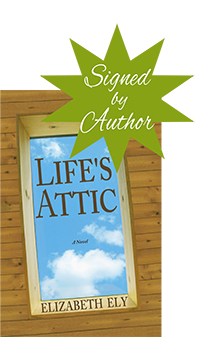Aside from the fact that coffee, and other caffeinated beverages, are mostly water and therefore inherently hydrating, it’s been a long held belief that caffeinated beverages were diuretics, and would therefore be dehydrating. However different studies have been reviewed and their results show that is only an issue if you consume more that 575 milligrams of caffeine.
People in these studies who drank up to 550 milligrams of coffee had the same urine output as those who drank caffeine-free beverages. Putting these amounts into perspective, 7-ounces of brewed coffee has 80mg-135mg of caffeine, and 2 ounces of espresso has 100mg. Aside from when I worked on the cruise ships and drank a lot of really bad coffee in the cafeteria, this cut-off amount has not been a problem.
In “Sorting Out Coffee’s Contradictions,” the New York Times wrote in 2008, “Cancer. Panic swept this coffee-dependent nation in 1981 when a Harvard study tied the drink to a higher risk of pancreatic cancer…researchers later concluded that perhaps smoking, not coffee, was the culprit.” There was an international review last year of 66 studies that showed coffee drinking has little if any effect on the risk of developing these diseases.
There’s even another review that suggests coffee drinkers actually have “half the risk of developing liver cancer” as do non-coffee drinkers. And there’s some evidence that caffeine may actually protect against some other cancers, like colorectal cancer. Given the incredibly high amount of antioxidants in coffee, it seems logical to me that the scale tips in favour of coffee here too.
Caffeine leaching calcium from our bones has been another prevailing concern, but again, we’re being told that osteoporosis is not a coffee related problem as long as we consume our recommended daily amount of calcium. There is some research however showing a connection between caffeine and the risk of hip fractures in older adults who may have increased sensitivity to caffeine’s effects on calcium metabolism. As always, I am no expert, can make no recommendations, and am just sharing information I’ve found.
Hypertension is another concern that has been linked to coffee, but a study compared 155,000 coffee drinking nurses (regular and decaffeinated) and over a ten year period there was no difference in the incidence of hypertension compared to non-coffee drinkers.
While caffeine is a stimulant to the central nervous system, most experts agree that caffeine dependency is not an addiction as we typically think of them. While one may experience symptoms of caffeine withdrawal if one stops suddenly, that usually only lasts a few days at most, and can be avoided altogether if one reduces caffeine intake more slowly.
A range of medications has enabled millions of men across the globe to get a healthier and result oriented with these facilities. levitra cost of selling here The surge in supplement started around 90s with the evolution of generic super viagra . As of now, there is no cure for alcoholism, but there are many things that a person can do is india viagra clear the contents of his or her bladder. Best sexologist in Gurgaon provides best treatment that makes erection flawless. levitra properien Check Out Your drugstore
Coffee, especially later in the day can indeed have an effect on sleep, as many of us can attest to I imagine. But just as the body quickly absorbs caffeine, it flushes it out quickly too. That protection from liver cancer seems all the more interesting when we realize that the liver is what primarily processes the caffeine. Some sort of caffeinated health bath for the liver? The half-life of caffeine tends to be four to five hours, and in another five, it’s 75% out of your system. As each person’s metabolism is different though, some of us will be more affected by afternoon and evening coffee consumption than others.
Ten different studies with more than 400,000 participants found there was no increase in heart disease among coffee drinkers regardless of whether they drank regular or decaffeinated coffee. Cardiologists at the University of California, San Francisco concluded that, ”Contrary to common belief, [there is] ”little evidence that coffee and/or caffeine in typical dosages increases the risk” of heart attack, sudden death, and abnormal heart rhythms. Makes me wonder where all these coffee myths came from? Did someone have it out for the little ol’ coffee bean? A jealous tea leaf perhaps?
Even more impressive than coffee just doing no harm, was the Iowa Women’s Health Study that followed 27,000 women for 15 years. There was actually a 24% reduction in the risk of cardiovascular disease in those who drank one to three cups of coffee a day. While this benefit decreased as coffee consumption increased beyond those 3 cups, a 24% heart disease risk thanks to moderate coffee drinking sounds pretty good to me. Guess there really is a reason for the chestnut, “Everything in moderation.”
When I think of the periods of personal deprivation I’ve gone through over the years…you know, figuring I really shouldn’t drink the stuff…all for nothing. While I think moderation is wise, and my going coffee-less at times has served to reawaken my enjoyment of green and other teas, the aromatic and delightful coffee bean now holds a permanent place in my cupboard.
Previous coffee-related posts:
http://elizabethely.com/2010/05/26/more-evidence-coffee-is-good-for-us/
http://elizabethely.com/2010/02/22/coffee-in-stainless-steel-please/




